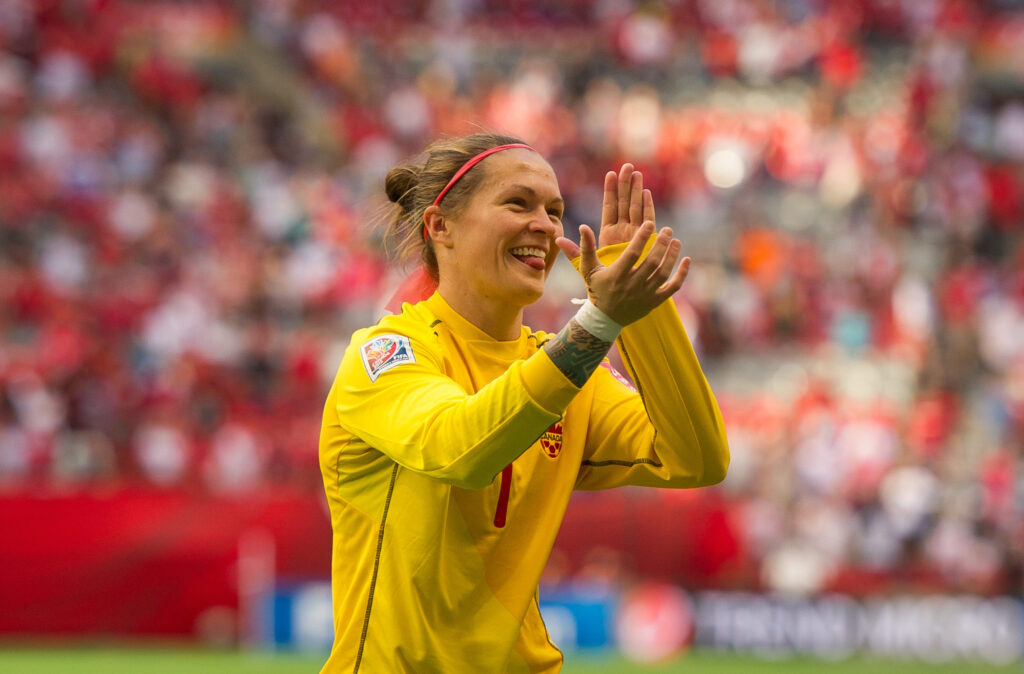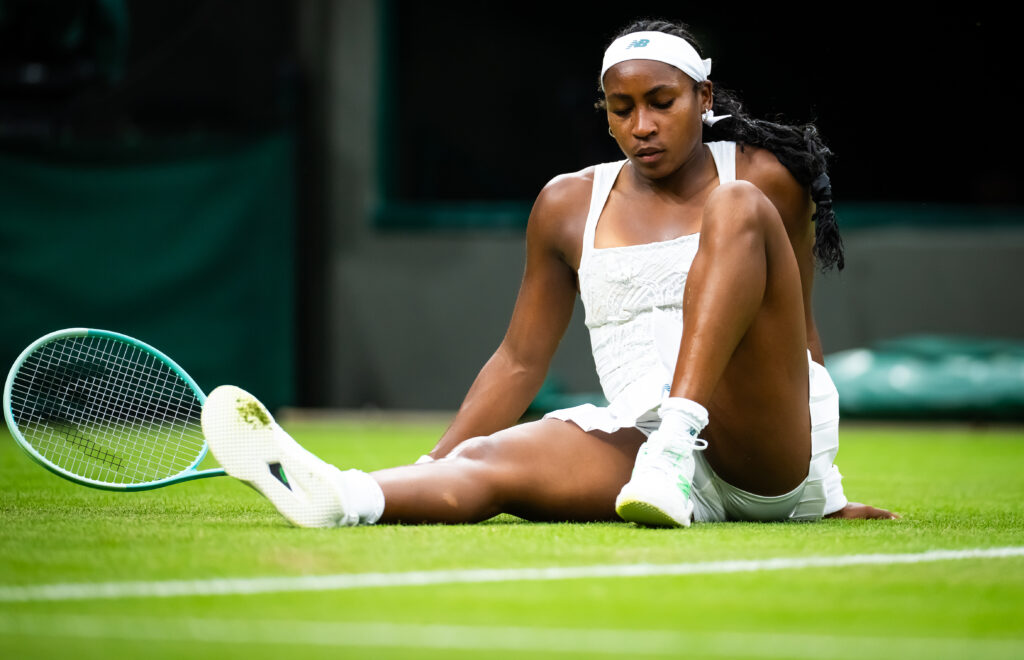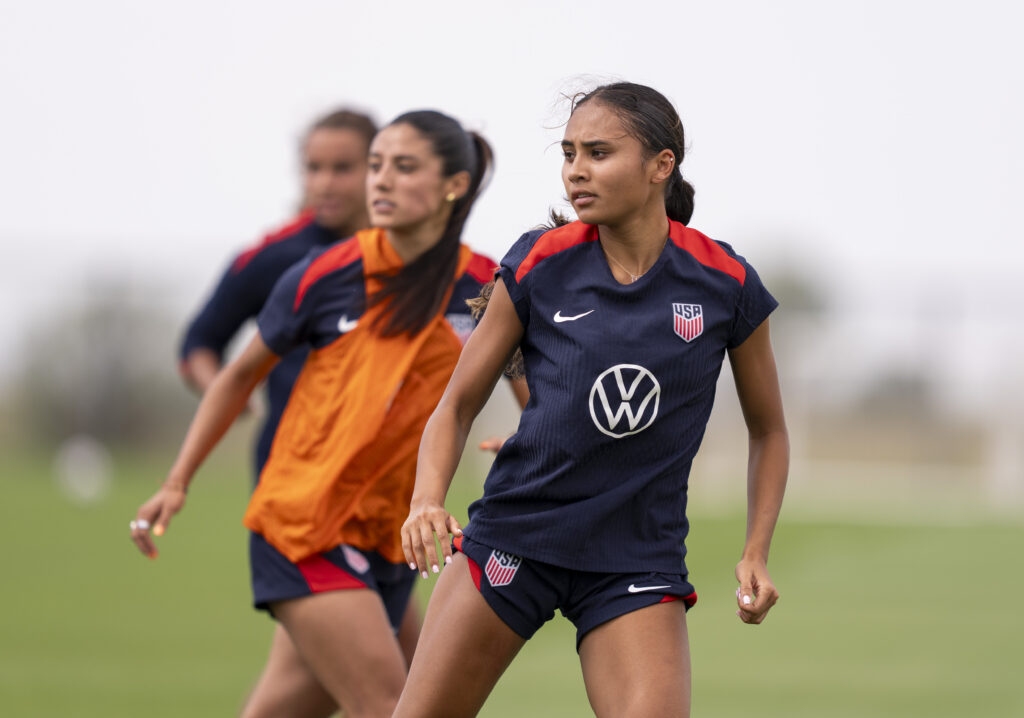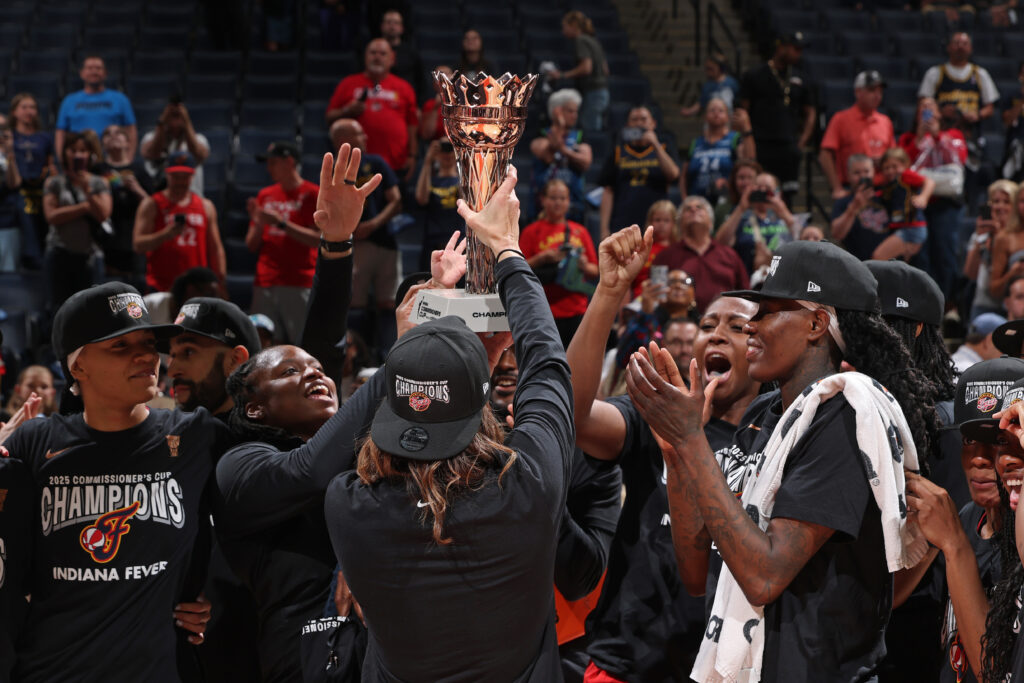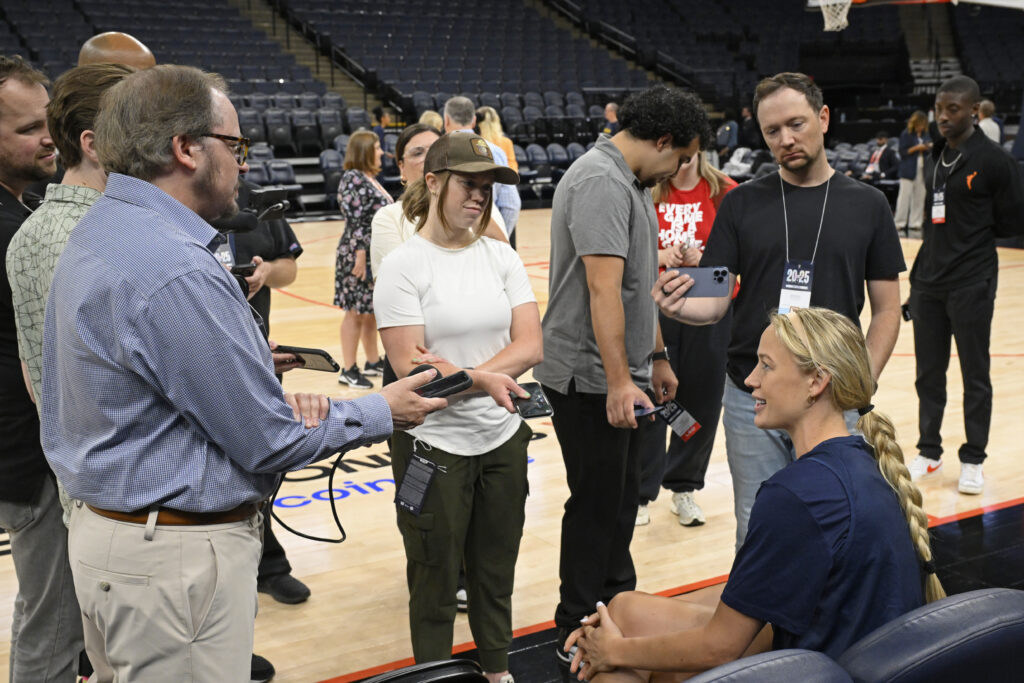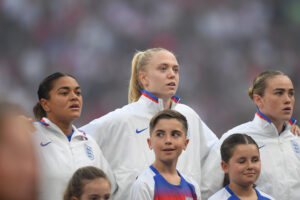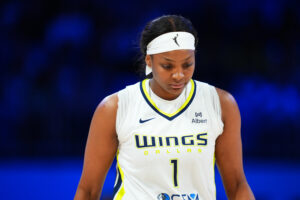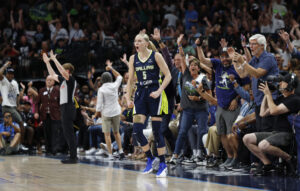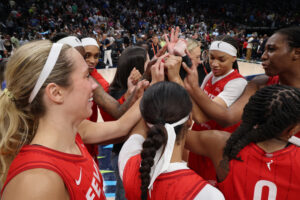Erin McLeod is a goalkeeper for the Orlando Pride, who spent this fall playing on loan to Stjarnan, in Iceland. McLeod has recorded 118 caps in her career for the Canadian National Team, and at age 37, is still going strong as she competes for a shot at the Tokyo Olympics. JWS spoke with McLeod about her career persistence, the benefits of mindfulness, and the perspective she’s gained as a veteran player.
I wanted to start with just chatting about your soccer career. You’ve obviously been around the game for a long time. Can you compare this past year soccer-wise to anything else in your career?
Oh gosh. I would have to say that, for obvious reasons, the pandemic has made this year more challenging and interesting and difficult in a lot of different ways. For me personally, I was really happy to be with Orlando, back on North American soil. And then obviously we weren’t able to go to the Challenge Cup with the team which was a bummer, so I just feel very fortunate that I was able to come to Iceland and to still play and to be healthy.
I think the other thing that has really come to the forefront this year with obviously Black Lives Matter and politics, is that it’s been really cool to stand up for things beyond just soccer. In some ways, it’s been really incredible, I think, as far as raising our self-awareness and understanding the topics around us.
You’ve played for a variety of teams in Europe over the last five years. What has kept you coming back?
Well, this year is kind of unique because of the pandemic. I’ve been wanting to be in the U.S. to be in a similar time zone to my family, but I really love the football in Europe, in the sense that it’s really helped me to evolve the tactical side of my game. And now you all these NWSL players here, and I think we all are becoming stronger tactically, stronger technically, stronger athletically. And the soccer culture in Europe is happy all the time, and everyone is crazy about it. I just love that. I think that it is also growing. That’s a huge draw for sure.
You signed with Orlando but, as you mentioned, the team couldn’t play in the Challenge Cup due to positive Covid tests. Can you talk about that situation and what that was like from your perspective?
It was hard just because we were so close to the tournament, and we had worked so hard, and we were feeling really connected as a group. It was such a hard thing to swallow, especially because we had been so careful and we were essentially in a training bubble.
Historically, Orlando hadn’t done well for years, and I was excited to be a newcomer to the team and realize how much it really means to them to play and get better. And then for that to happen, it was hard. And you see a lot of pride with people when things are really challenging. But I think the way that the team rallied and had a lot of new players coming into the mix, that really impressed me during the Fall Series.
How much longer do you hope to keep playing for?
That is a great question. I don’t know. The thing is right now, I feel really good and healthy and I love the game so much. I try not to put an end date on it when I would really love to plan out a year, you know, make it to the Olympics. I would love to be on that Olympics squad. And I know it’s a far stretch, but yes, in a dream world I would play another year and then, you know, hopefully be healthy and in a good place to evaluate whether to play another year or turn off. At my age, it’s kind of a day by day kind of thing, you know?
How do you think your motivation to keep playing has changed over the years? I could imagine it’s different now than say when you were like 25.
Oh, absolutely. I think when I was with Denver, I would say I was a lot more selfish, in the sense that what I was most concerned with was probably my own development, to be pretty honest. And I was obsessed with being the best and being number one, and I wanted to be the best in the world. It’s not that I don’t want those things now, it’s just the thing I get really excited about is now I’m playing on a team and I come back and some 16 year old is on my team and I see their parents pick them up who are my age, and I’m like, alright.
But I see these young, talented players, and I think you want to see them get the most out of themselves, and that for me is motivating. And playing on a team where I can play forever and give to the team — I really love that. And driving a standard and creating and focusing on the things I can control and also trying to have an impact in a positive way. It’s much more exciting now than it has been in the past.
You’ve lived a very active life off the field in terms of your art, your philanthropic works, and your clothing lines. Do you think having all these other passions has helped extend your soccer career by helping you keep perspective and have creative outlets?
Oh yeah, absolutely. I think for me, there’ve been a few moments in my career where I was forced to step away from the game and I kind of lost my identity and who I was. And I think what’s important and what I really encourage young people to do is to find things that they love but to still find that balance. And it’s still something that I struggle with, because I want to do so many things.
I’ve really learned to make sure now I try to go for walks, meditation walks, just making time away from the field actually helps my game. So it’s important, not just for my game, but also for my mental health.
Can you give a quick intro on The Mindful Project and how mindfulness was introduced into your life?
So I met Dr. Rachel Lindvall, my partner, who has her doctorate in mindfulness, a number of years ago. Her and her husband worked in Europe to get inspiration for their university soccer in the US and long story short, they were in Jena in Germany when I was in the Bundesliga. And they said, Hey, we’re in town. You know, I didn’t speak a lick of German, and I was broke and they were like, do you want to go for dinner? And I was like, yes, please.
So we first started chatting about soccer and it naturally transitioned into mindfulness. And at that point I had already been using a lot of mindfulness for my soccer, but also off the field, so we started chatting. And then we also talked about mental habits and mindset and at what age we start developing these, how they can work against us, even at three and half, four years old.
That’s kind of where we started, discussing how can we just help young people develop positive habits and develop those mindsets. That’s how it started, and we created a sports program and an education program for kids eight to 12, 13 years old and we ended up getting into a lot of after-school programs.
And, and then we ended up trying the same program on a couple of Rachel’s classes and her university team, and the results were unbelievable. And it’s like the increase in quality of life was like 200%, and then the decrease in stress and anxiety was 194%, and we’re like, we can do something about this. Then we started talking about a way to create a high performance program and shipping it over.
For me personally, I had a moment in my career in 2008 at the Beijing Olympics where depression had become so much, that I remember actually wanting to get hurt, because I couldn’t handle the pressure anymore. I was afraid of playing. I was afraid of making mistakes. Long story short, I tore my ACL, and I just re-evaluated everything, how I was working so hard just to be miserable. I had to change. And for me, that was kind the moment where I started evaluating my mindset and then a few years later, we had this wonderful trainer who gave me all these breathing tricks and focus tricks and awareness tricks which d opened my vision to see the whole field. And I didn’t realize at the time that they were mindfulness tricks, and then I started reading more and more about it and it helped me obviously become more consistent, more in the present moment, which is key for athletes. And I just started enjoying it more.
And ever since then, Rachel and I have been committed to creating The Mindful Project, to help others when you’re on your own. It’s like, if I’m doubting now, this is my attempt to learn and see.
You’ve mentioned elsewhere that mindfulness could have changed your career and ended up being really useful for you. Is that your pitch to other athletes who may be considering it or is it something different?
I think the trend with a lot of athletes is that we’re hard on ourselves. What I’ve learned from the research side, because of Rachel and her research, is being hard on yourself doesn’t help them learn any faster. It actually slows your learning and it makes it less enjoyable. So for me, it’s becoming aware of my self-talk, where my self compassion was at, how I viewed mistakes, and how I dealt with failure.
I think for me, if I could talk with athletes, it would first just be about enjoying it more, being in the present moment more. Because that moment where you just trust yourself and you let the ongoing monologue inside your head go for a second, it’s so liberating. And if you’ve got a great breathing thing and it keeps you focused when you’re stressed out, it’s also going to work when you’re off the field. And for me, it’s about the life tools that will help you become a better person.
That’s so well said. I wanted to end with talking about the upcoming 2021 Olympics. What is your status there?
Well, we’re down to the wire, because obviously, you know, the pandemic made it really challenging. There was supposed to be a camp in October, which I was invited to. And you know, I think it’s been over a year since I’ve been with the national team. So I was obviously really excited about that, but it just wasn’t going to work with health and safety protocols. So I’m still in the mix, and there’s four keepers for Canada. And I can’t really say much more than that, but I’m in the mix and I think for me, that’s the first step. I think it’s important for me to stay healthy and to be playing games. You know, obviously I hope that will be possible. And with the pandemic and everything, we’ll see.
